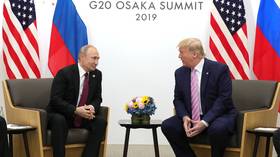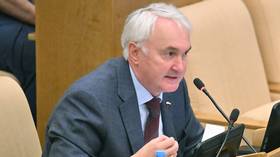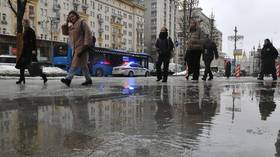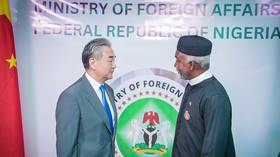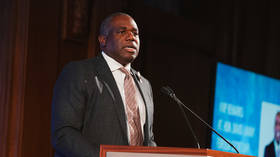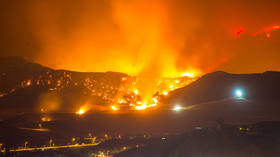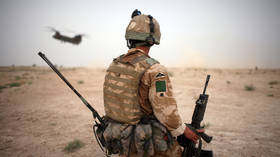‘Why is Washington ramping up sanctions on Iran? We are both fighting the same terrorists!’
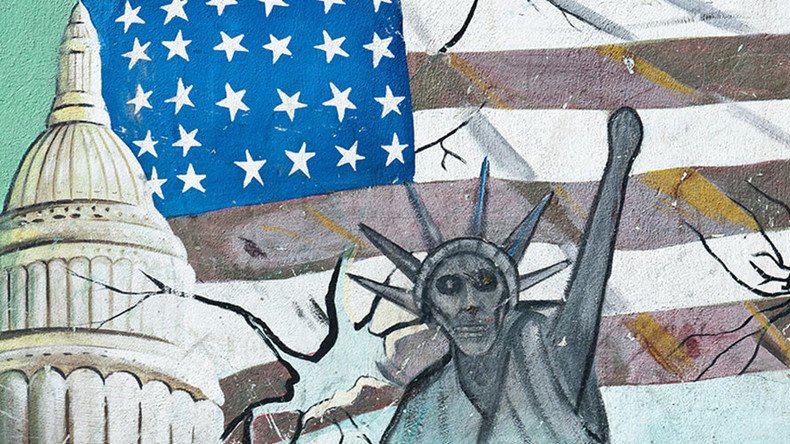
Donald Trump is continuing the same kind of policy that was started under Obama. It is just phase two – to take away Iran’s ballistic missile power, as well as its regional clout and influence, Seyed Mostafa Khoshcheshm, political analyst, told RT.
The US on Tuesday imposed a new round of sanctions on Iran. This time the US State Department claims Tehran is a threat to regional security and America itself.
Washington also condemned what it described as Iran's 'malign activities.' As well as testing and developing ballistic missiles, the US has accused Iran of supporting terror groups, undermining regional stability and disregarding human rights.
Trump admin slaps Iran with new sanctions despite nuclear deal compliance https://t.co/3JHrlCIqF6pic.twitter.com/VVTpxDukSY
— RT (@RT_com) July 18, 2017
RT: What do you make of these latest sanctions?
Seyed Mostafa Khoshcheshm: I believe the Trump administration is playing phase two of the same engagement policy that Obama did. This is nothing new. Even Obama, who started this nuclear deal with Iran, and at the end of the marathon talks eventually in Vienna he started imposing similar sanctions against Iran. A number of Iranian, and even foreign – like Chinese institutions and companies – were put under sanctions for dealing with Iran and having trade and banking ties with Iran after the nuclear deal. Also, the Visa Waiver Program was changed.
Despite the fact [John] Kerry, the former Secretary of State promised his Iranian counterpart, Mr. [Mohammad Javad] Zarif, that the President would veto the negative aspects of those changes against the Iran. They didn’t do that. Also, the ISA, or the Iran Sanction Act, went into force again and it was renewed in complete violation of the JCPOA [Joint Comprehensive Plan of Action] in 2016 for another ten years under the Obama administration, and Obama did not stop the extension or reintroduction of the same old ISA sanctions against Iran.
Iran sticking to nuclear deal terms, but undermining its spirit - Trump https://t.co/1tJDY3xDG5
— RT America (@RT_America) July 18, 2017
Trump is continuing the same kind of policy that was started under Obama. It is not going to end soon – it is just phase two – to take Iran’s winning aces from it. It includes Iran’s ballistic missile power, as well as its regional clout and influence.
RT: Washington says Iran is a threat to regional security. How do you assess that?
SMK: Iran is fighting ISIS. We all know that all this mess in the region started after 9/11. The US claims the 9/11 attacks were conducted by Al-Qaeda. Ever since then they have been at war in this region. Iran is fighting the same goons and the same terrorists - Al-Qaeda offshoots, like Al-Nusra Front, like ISIS. The same kind of terrorists have wreaked havoc on people throughout the world – from the Philippines to London, to Brussels, Paris, Nice, everywhere.
Iran is fighting them. Iran, Russia, Syria, Hezbollah, and Iraq are the only five parties and states that are fighting terrorism in the region. The US so-called war on terrorism has not produced anything so far, except for collateral damage and civilian casualties.
Undermining Iran and threatening Iran means ISIS would have a free hand, it would be empowered. So the US is actually empowering proxy forces in the region and the militant groups that are working for Saudi Arabia and some other US allies, and US former officials like Michael Flynn, John Kerry, Joe Biden, and many others have admitted the US allies are forming these groups and financing and providing them with arms. This is nothing new of course. The point is that Iran and Russia right now have brought some kind of relative stability to parts of Syria, while the US allies have been bringing more and more chaos into the region.
The statements, views and opinions expressed in this column are solely those of the author and do not necessarily represent those of RT.


